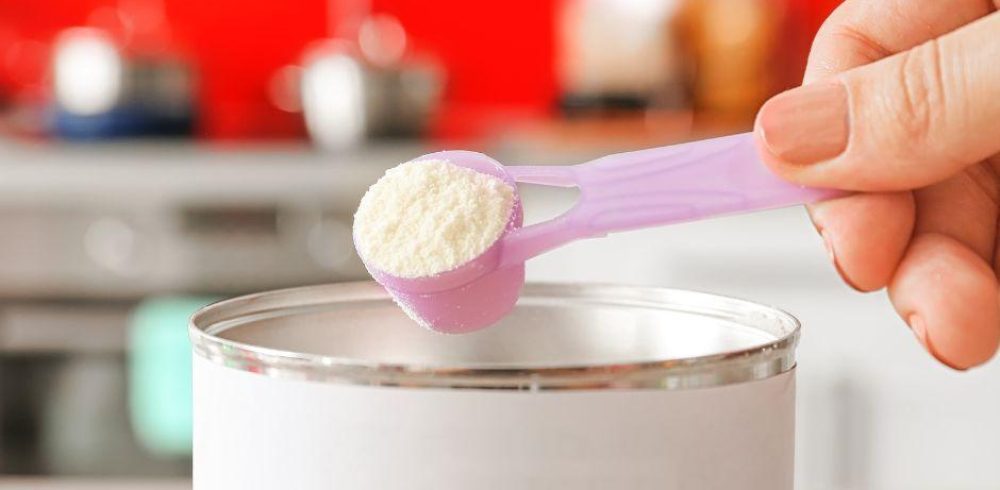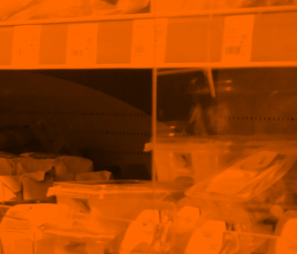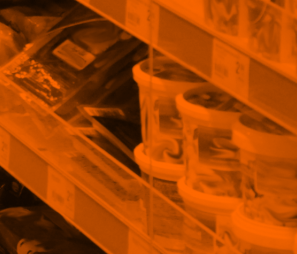Research undertaken as part of The Food Foundation’s Kids Food Guarantee funded by Fusion21 found that the government benefit which is designed to provide a nutritional safety net for mothers on low incomes by providing vouchers for fruit, vegetables, milk and formula, would not cover the cost of any infant formulas sold in supermarkets in the UK.
There are no first infant formulas available that are affordable with the Healthy Start allowance, which is £8.50 per week, or £34 per month for those with children aged under one.
Across all nine major supermarkets reviewed, the price of a tin of standard powdered formula ranges from £9.39 to £15.95, a difference of £6.56. This means the highest priced formula product is 70% more expensive than the lowest priced product.
Aldi’s Mamia formula, the only retailer own-brand formula on the market, is the cheapest product available at £1.04 per 100g. The most expensive brand is Aptamil by Danone, with a price range of £1.68 to £1.99 per 100g across the nine retailers examined.
The Food Foundation’s research also found that the same brand of formula was available for a range of different prices depending on where it was stocked, despite first infant milk formula products being comparable in terms of nutrition composition due to strict regulation around the composition of formula milks. For example, Aptamil costs £1.68 per 100g at Iceland but £1.99 per 100g at the Co-operative Group. Kendamil first infant milk costs £1.11 per 100g at ASDA but £1.50 per 100g at Sainsbury’s and Ocado.
The cost of living crisis is making it harder for some families to afford formula. First Steps Nutrition reports that between March 2021 (before food prices started to rise) and April 2023, the seven standard powdered first infant formulas sold by the market leaders increased in cost by an average of 24%, and the only ‘own-brand’ infant formula on the market (ALDI’s Mamia brand, which remains the cheapest) increased by 45%.
The Food Foundation’s Kid’s Food Guarantee is therefore calling for retailers to offer an own brand formula and encouraging both manufacturers and retailers to insulate first infant milk formula from the worst of food price inflation. Own-brand or own-label products are carried exclusively by the supermarket that owns them and are generally cheaper than branded goods despite being of comparable or identical quality.
Data from The Food Foundation show that 27% of UK households home to children under the age of four experienced food insecurity in January 2023, which is higher than for those households with only school-age children or no children at all. Despite the risk this poses to children’s health, the value of the Healthy Start allowance in England, Northern Ireland and Wales has not increased in line with inflation. In Scotland, the value of Best Start funds increased in line with inflation by 10.1% in April 2023 in recognition of the difficulties many households are facing due to the cost of living crisis. Payments increased to £9.90 (£39.60 a month) for children aged under one.
The wide disparity in pricing of products that are nutritionally equivalent (due to strict regulations on the nutrition composition of formula) is driven in large part by differences in branding and marketing, with own-brand formulas often cheaper as a result of simpler packaging and branding (rather than being nutritionally inferior to more expensive alternatives).
Anna Taylor, Executive Director of The Food Foundation, said: “First infant milk formulas are becoming increasingly expensive for many low income families. This is a huge risk to children’s health given that where breastfeeding is not chosen or possible, infant formula before the age of six months is the only option parents have for feeding their infants, and is a key source of both calories and other essential micronutrients between six months and the age of one. Attempts by parents to cut costs, for example by reducing feeding frequency, ignoring best before dates, or over-diluting powdered infant formula, come with extremely worrying health risks. We need urgent action from the government to increase the value of Healthy Start funds in line with inflation, and more action from retailers to support their customers struggling with the cost of living crisis.”
Vicky Sibson, Director at First Steps Nutrition, said: “The unaffordable and unjustified high cost of most infant formulas is a concern that pre-dates the current cost of living crisis. The fact that the prices have kept on rising while formula company profit margins have been reported to exceed 20% must be investigated by relevant authorities. Infant formula is an essential food for many infants in the U.K. and the government has a responsibility to ensure that the parents/carers of every baby who needs it can reliably access it. Inadequate diets in the early years can have life-long implications. The health of babies must come before business profits.”
Manufacturing & Engineering Magazine | The Home of Manufacturing Industry News















